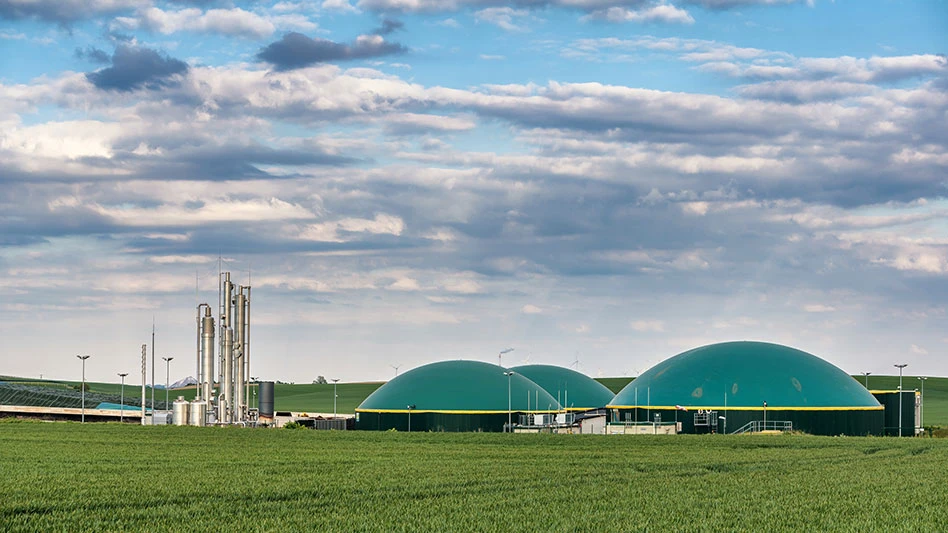
Photo courtesy of Mill Industries Inc.
Mill Industries Inc. has introduced a membership-based service that includes a kitchen bin that processes food waste into a product the company calls Food Grounds which it then converts into chicken feed.
The San Bruno, California, company has aimed the membership program at homeowners, but the company also is looking to partner with municipalities, businesses and organizations.
Those choosing to become members receive a Mill kitchen bin that dries, shrinks and removes odors from kitchen scraps overnight.
Once the kitchen bin is full—which take a few weeks—members schedule a pickup time for the Food Grounds in the Mill app and send them back to the company. From there, Mill turns the Food Grounds into a chicken feed ingredient.
“Mill makes it easy to do the right thing,” Mill cofounder and CEO Matt Rogers says. “Food isn’t trash. But until today, it was hard to do anything except throw uneaten food in the garbage. The Mill membership is a simple way to keep food out of landfills, send it back to farm and make your kitchen smell awesome. … Resources are increasingly scarce; wasting food at home is a solvable problem that we can tackle together. This is just the beginning for Mill. Sign up today at mill.com, and make an impact right from your kitchen.”
RELATED: Canada names Food Waste Reduction Challenge finalists | Food waste recycling plant helps fill processing gap in Connecticut
Mill says its members can prevent about a half-ton of greenhouse gas emissions per household per year. This estimate takes into account the manufacturing of the bin, energy usage and the transportation of Food Grounds back to the company.
“Waste doesn’t exist in nature; yet we create it everywhere and have been trained to ignore it or worse, believe it’s inevitable,” Mill cofounder and President Harry Tannenbaum says. “Food in landfills is one of the most solvable climate problems facing us today. At Mill, we’re building a pathway to connect what people can’t eat at home with farms that benefit from a more sustainable feed ingredient. Our approach is a practical and easy way to stop wasting food at home, prevent rotting garbage on the curb, and reduce methane emissions. Together with our members and the communities and policymakers we work with, we can make progress towards a better planet.”
Rogers and Tannenbaum founded Mill in 2020 by Matt Rogers and Harry Tannenbaum after working at Nest building the Nest Learning Thermostat and other smart home products. The lessons they learned about encouraging new habits at home that are good for people and the planet are relevant to changing the perception of waste starting in the kitchen.
Get curated news on YOUR industry.
Enter your email to receive our newsletters.Latest from Waste Today
- ASAP Marketplace launches the Dumpster Debris Calculator
- Yanmar Compact Equipment North America appoints new president
- Plum Creek Environmental acquires Custom Installation LLC
- Avis introduces Harris American Co.
- Landfill Insights: The science of landfill compaction
- Project Canary, Sniffer Robotics partner to develop methane emissions monitoring tools
- Montauk Renewables breaks ground on Tulsa RNG project
- Meridian Waste donates $50K to community organizations






